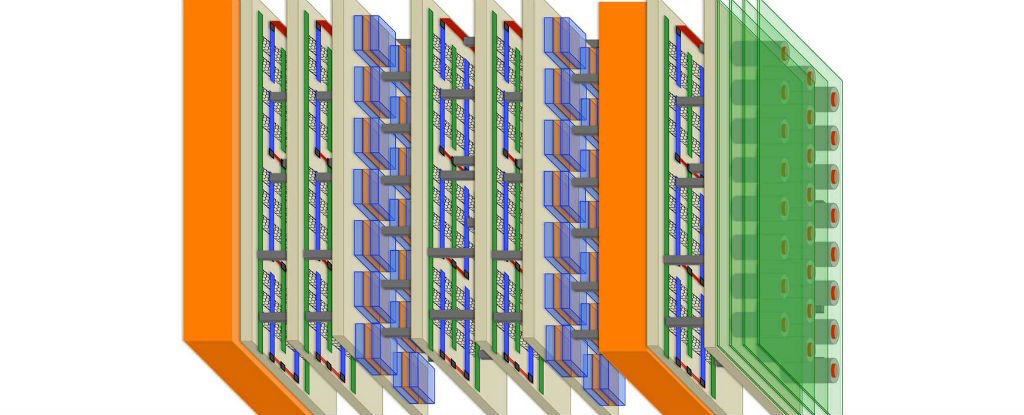
Skyscrapers
A team of US engineers from Stanford have discovered that replacing silicon in conventional chips with nano-materials allows it to be stacked, instead of laying it out side by side, resulting in more efficient data processing.
“When you combine higher speed with lower energy use, N3XT systems outperform conventional approaches by a factor of a thousand,” says researcher H. S. Philip Wong, from Stanford University, in the press release.
To that end, in an upcoming paper in the IEEE Computer journal, the team outlines how they’ve run simulations that demonstrate how the advanced skyscraper approach is 1,000 times more efficient than conventional computer systems.
The multi-layer chip, called N3XT, is able to break data bottlenecks by layering processors one on top of the other like a skyscraper. Current arrangement of chips not only take up a lot of space, they also require digital signals to cross long distances that take a lot of time.
The press release from Stanford noted that the key is the use of non-silicon materials that can be fabricated at much lower temperatures than silicon, so that processors can be built on top of memory without the new layer damaging the layer below.
To effectively stack chips, researchers have replaced silicon transistors with carbon nanotube transistors (CNTs). CNTs do not require high temperatures during manufacturing but also work faster than conventional silicon transistors. When stacked, the CNT work like electronic ‘elevators’ that allow data to travel easier across shorter distances.
Efficient Systems
The new concept not only allows devices to be more efficient, it also allows for more processors and chips into smaller spaces, ultimately allowing the development of more powerful, portable machines. Before that happens however, the researchers have to convince the industry to shift from traditional infrastructure towards this new, albeit more efficient, system.
“There are huge volumes of data that sit within our reach and are relevant to some of society’s most pressing problems from health care to climate change, but we lack the computational horsepower to bring this data to light and use it,” said computer scientist Chris Re.
“As we all hope in the N3XT project, we may have to boost horsepower to solve some of these pressing challenges.”